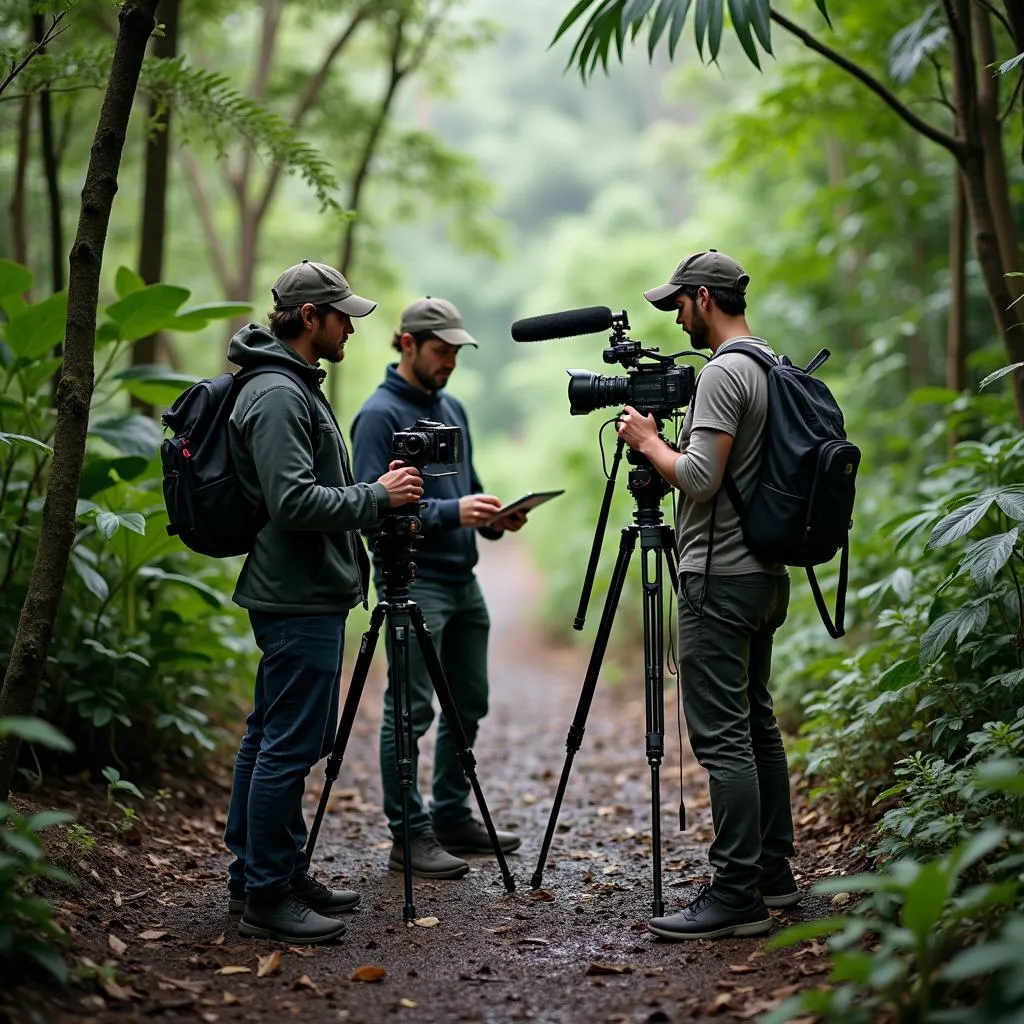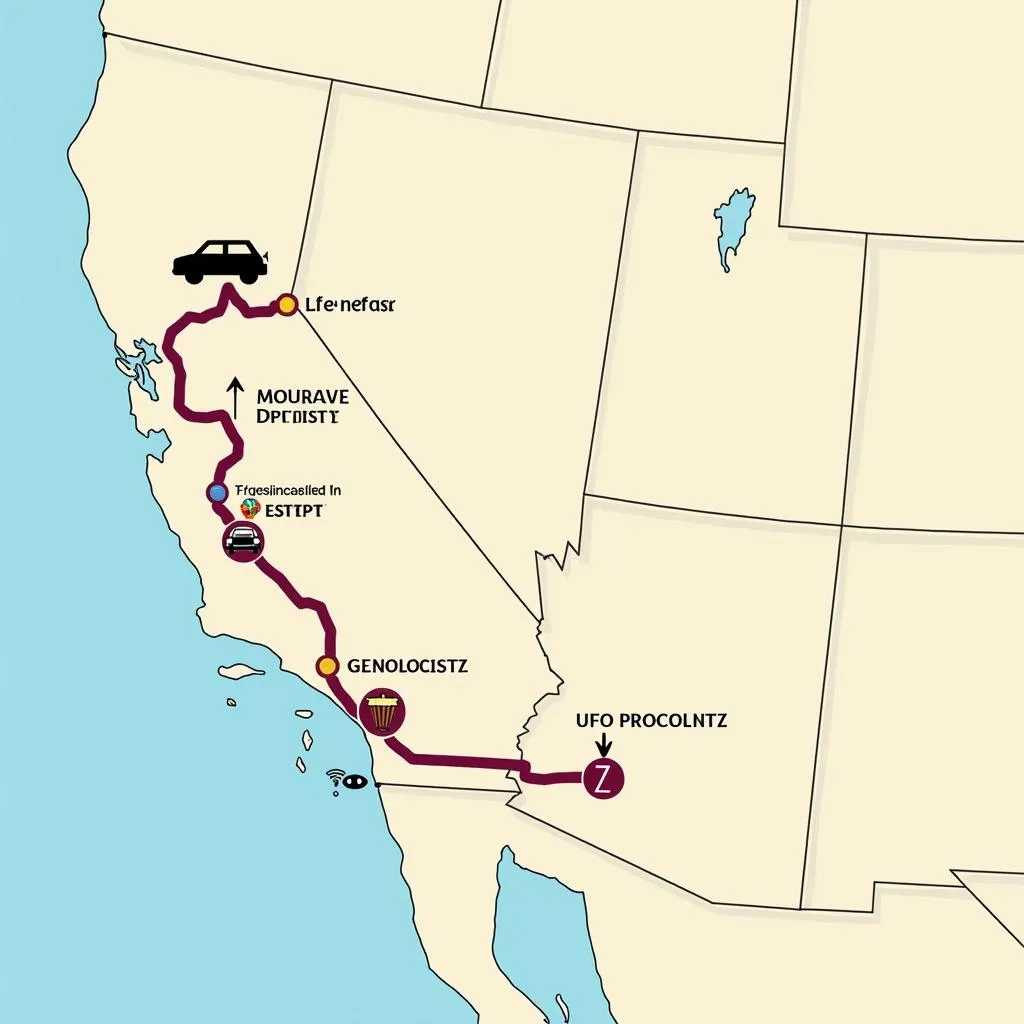Nature documentaries have become increasingly popular topics in IELTS Speaking exams, particularly in Part 2 and Part 3. Being able to eloquently describe a nature documentary you’ve watched can significantly boost your score. This article will guide you through answering questions about nature documentaries in all parts of the IELTS Speaking test, with sample answers for different band scores.
Nội dung bài viết
Part 1: Introduction and Interview
In Part 1, you may be asked general questions about nature documentaries. Here’s a sample question with a suggested answer:
Question: Do you enjoy watching nature documentaries?
Sample Answer (Band 7-8):
“Absolutely! I find nature documentaries fascinating and educational. They offer a unique glimpse into the wonders of the natural world that we might never experience firsthand. I particularly enjoy documentaries that explore marine life or remote ecosystems. They not only entertain but also raise awareness about environmental issues, which I believe is crucial in today’s world.”
Part 2: Long Turn
Here’s a sample cue card related to describing a nature documentary:
Describe a nature documentary you recently watched
You should say:
- What the documentary was about
- Where and when you watched it
- Who you watched it with
- And explain why you found it interesting
Sample Answer (Band 8-9):
“I’d like to talk about a captivating nature documentary I watched recently called ‘Our Planet,’ specifically the episode about coastal seas. I viewed it on Netflix about a month ago in the comfort of my living room, accompanied by my younger sister who shares my passion for marine life.
This particular episode delved into the intricate ecosystems of coastal areas around the world. It showcased an array of marine species, from the smallest plankton to enormous whales, and highlighted how these diverse creatures coexist and depend on each other. What struck me most was the stunning cinematography – the underwater footage was simply breathtaking, capturing the vibrant colors and graceful movements of sea life in crystal-clear detail.
I found this documentary incredibly interesting for several reasons. Firstly, it shed light on the critical role coastal seas play in maintaining the Earth’s biodiversity. The filmmakers expertly explained complex ecological concepts in an accessible way, making it easy for viewers like myself to understand the delicate balance of these ecosystems.
Moreover, the documentary didn’t shy away from addressing the pressing issue of climate change and its impact on coastal habitats. It presented sobering facts about rising sea temperatures and ocean acidification, but also offered hope by showcasing conservation efforts and resilient species adapting to changes.
What really set this documentary apart was its ability to inspire awe while simultaneously educating viewers. It left me with a profound appreciation for the marvels of nature and a strong desire to contribute to conservation efforts. The experience was both entertaining and thought-provoking, making it a truly memorable viewing experience.”
 Couple watching nature documentary on TV
Couple watching nature documentary on TV
Follow-up questions:
- What aspect of the documentary did you find most surprising?
- How has watching this documentary changed your perspective on marine conservation?
Sample Answers (Band 8-9):
-
“The most surprising aspect of the documentary was the revelation of bioluminescent creatures living in the deepest parts of the ocean. I was astounded by the diversity and adaptability of these species that thrive in complete darkness. It opened my eyes to how much we still have to learn about our planet’s oceans.”
-
“Watching this documentary has profoundly impacted my perspective on marine conservation. It drove home the urgency of protecting our oceans and made me realize that even small actions can have significant consequences. I’ve become more conscious of my plastic usage and have started supporting local beach clean-up initiatives. The documentary effectively conveyed that the health of our oceans is inextricably linked to the wellbeing of all life on Earth, including humans.”
Part 3: Two-way Discussion
In Part 3, the examiner will ask more abstract questions related to the topic. Here are some sample questions with suggested answers:
Q1: How do you think nature documentaries influence people’s understanding of environmental issues?
Sample Answer (Band 7-8):
“I believe nature documentaries play a crucial role in raising awareness about environmental issues. They have the power to visually illustrate the impact of climate change and human activities on ecosystems, making these abstract concepts more tangible and relatable. By showcasing the beauty of nature alongside the threats it faces, these documentaries can evoke emotional responses and inspire viewers to take action. However, it’s important to note that while they can spark interest, documentaries alone may not be sufficient to fully educate people on complex environmental issues.”
Sample Answer (Band 8-9):
“Nature documentaries serve as a powerful medium for educating the public about environmental challenges. They bridge the gap between scientific research and public understanding by presenting complex ecological concepts in an accessible and visually compelling manner. These films often employ cutting-edge technology to capture never-before-seen footage, which can profoundly impact viewers’ perceptions of the natural world.
Moreover, well-crafted documentaries can instill a sense of global responsibility by demonstrating the interconnectedness of ecosystems worldwide. They often highlight the ripple effects of environmental degradation, showing how issues like deforestation or ocean pollution can have far-reaching consequences.
However, it’s crucial to recognize that while documentaries can be instrumental in raising awareness, they should be viewed as a starting point rather than a comprehensive source of information. To truly foster a deep understanding of environmental issues, viewers should be encouraged to supplement their viewing with further reading and engagement with scientific literature.”
 Nature documentary film crew in action
Nature documentary film crew in action
Q2: Do you think the rise of online streaming platforms has changed how people consume nature documentaries?
Sample Answer (Band 7-8):
“Yes, I think online streaming platforms have significantly altered how people watch nature documentaries. These platforms have made high-quality documentaries more accessible to a wider audience, allowing people to watch them at their convenience. This accessibility has likely increased viewership and potentially raised awareness about environmental issues. However, the abundance of content on these platforms might also mean that some excellent documentaries get lost in the shuffle, not receiving the attention they deserve.”
Sample Answer (Band 8-9):
“The advent of online streaming platforms has revolutionized the consumption of nature documentaries in several ways. Firstly, these platforms have democratized access to high-quality content, allowing viewers from diverse backgrounds to engage with nature documentaries that were previously limited to television broadcasts or specialized channels.
Moreover, streaming services have facilitated binge-watching, enabling viewers to immerse themselves in series of nature documentaries, potentially leading to a more comprehensive understanding of environmental issues. The algorithmic recommendations on these platforms can also guide viewers to related content, fostering a deeper exploration of specific topics.
However, this shift is not without its challenges. The on-demand nature of streaming might lead to a more fragmented viewing experience, potentially diluting the impact of scheduled broadcasts that once created shared cultural moments around important environmental messages. Additionally, the abundance of content on these platforms could lead to a paradox of choice, where viewers might feel overwhelmed and struggle to identify authoritative and scientifically accurate documentaries among the plethora of options.
Despite these challenges, I believe the benefits outweigh the drawbacks. The increased accessibility and variety offered by streaming platforms have the potential to cultivate a more environmentally conscious global audience, particularly among younger generations who are more likely to use these services.”
Key Vocabulary and Phrases for High Scores
-
Biodiversity /ˌbaɪəʊdaɪˈvɜːsəti/ (noun): The variety of plant and animal life in a particular habitat.
Example: The documentary highlighted the incredible biodiversity of the Amazon rainforest. -
Ecosystem /ˈiːkəʊˌsɪstəm/ (noun): A biological community of interacting organisms and their physical environment.
Example: Coral reefs are complex ecosystems that support a wide array of marine life. -
Conservation /ˌkɒnsəˈveɪʃn/ (noun): The protection of plants, animals, and natural areas.
Example: The film emphasized the importance of conservation efforts to protect endangered species. -
Habitat /ˈhæbɪtæt/ (noun): The natural home or environment of an animal, plant, or other organism.
Example: Climate change is rapidly altering the habitats of many Arctic species. -
To shed light on (phrasal verb): To reveal or provide information about something.
Example: The documentary shed light on the hidden world of deep-sea creatures. -
Thought-provoking /ˈθɔːt prəˌvəʊkɪŋ/ (adjective): Stimulating careful consideration or attention.
Example: The documentary presented thought-provoking ideas about our relationship with nature. -
To raise awareness (phrase): To increase public knowledge or understanding about a particular issue.
Example: Nature documentaries play a crucial role in raising awareness about environmental challenges. -
Cinematography /ˌsɪnəməˈtɒɡrəfi/ (noun): The art of making motion pictures.
Example: The stunning cinematography captured the beauty of the underwater world in vivid detail.
Examiner’s Advice
To excel in describing a nature documentary in your IELTS Speaking test:
-
Expand your vocabulary: Familiarize yourself with scientific and environmental terms relevant to nature documentaries.
-
Practice describing visuals: Work on vividly describing scenes you might see in a nature documentary.
-
Develop critical thinking: Be prepared to discuss the broader implications of the documentary’s content.
-
Stay informed: Keep up-to-date with current environmental issues to provide relevant examples and insights.
-
Use a variety of sentence structures: Incorporate complex sentences and idiomatic expressions to demonstrate language proficiency.
Remember, the key to a high score is not just what you say, but how you say it. Aim for fluency, coherence, and a wide range of vocabulary and grammatical structures.
Describe a recent book or film that explored a social issue to further enhance your IELTS Speaking skills. Additionally, you might find it helpful to describe a time when you were inspired by a book or movie, as this can provide valuable practice in expressing personal experiences and opinions.
By following these guidelines and practicing regularly, you’ll be well-prepared to discuss nature documentaries and related topics in your IELTS Speaking test. Good luck!


